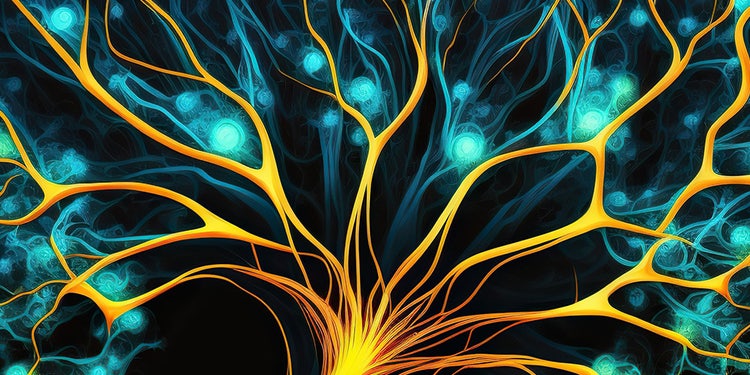
Generative AI: boundless potential at our fingertips styles-h2
data-xy-axis-lg:0% 50%; data-xy-axis-md:null; data-xy-axis-sm:90% 0%
<p><br> July 14, 2023</p>
Generative AI: boundless potential at our fingertips
<p><b>How generative AI can shrink the digital divide, empower humans and forge new collaboration frontiers.</b></p>
<p><i>This article was written by Ravi Kumar S, Chief Executive Officer, Cognizant and Andreea Roberts, Vice President of Marketing.</i> <i>This perspective originally appeared on </i><a href="https://brand-studio.fortune.com/cognizant/generative-AI-boundless-potential-at-our-fingertips/?prx\_t=\_n8IAAAAAAovEQA" target="_blank"><i>Fortune.com</i></a><i>.</i></p> <p>The public unveiling of OpenAI’s ChatGPT has brought about a tectonic shift in the role technology plays in our lives. It demystified the potential of generative artificial intelligence (AI) virtually over night, humanized powerful software, and made it accessible to all.</p> <p>Tasks and talents that were once exclusive to<i> </i>humans, and even defined our humanity, are now shared with algorithms. Rather than stifling humans, however, this technology has enabled us to expand our knowledge and skillsets far beyond what we previously thought possible. We are now on a journey through uncharted territory, an evolutionary leap where generative AI places boundless potential at our fingertips—shrinking the digital divide, empowering users, and transforming business and work through new levels of human-machine collaboration.</p> <h4>From digital divide to universal access</h4> <p>Historically, technology has created a divide—between those who can use specific programming languages and those who cannot as well as between businesses with sufficient resources to invest in proprietary applications and those unable to compete. Packaged enterprise software and open-source platforms broadened access to productivity and business apps. Still, the burden of capital requirements and the need for extensive customization kept these applications out of many businesses' reach.</p> <p>First came the advent of cloud computing and software as a service (SaaS) models, then low to no-code apps and Agile methodologies dramatically expanded access to enterprise-grade software, assisted by favorable commercial models that eased the transition from capital to operational expenses. Yet, during the digital acceleration of 2020, digital capabilities contributed to a performance chasm—digitally forward businesses experienced a boost, while digital laggards fell behind.</p>
<h4> </h4> <h4>Amplifying human potential—the power in our hands</h4> <p>Never before has such a powerful technology, able to emulate human creativity on a vast scale, been as easily accessible and as simple to use as it is today. Its deployment by businesses, governments, nonprofits, and the scientific community can help solve some of humanity’s most pressing challenges—boosting sustainability, finding cures for deadly diseases, and alleviating poverty through personalized, automated education and agricultural innovation, for example. While these uses have been explored with earlier AI technologies, they can be substantially intensified and accelerated with generative AI.</p> <p>More novel and equally exciting, however, is the impact generative AI is primed to make on our personal lives. It can give people the capacity to enhance their knowledge, decision-making and resourcefulness in their personal spheres, and become a ‘knowledge worker’ in their own lives. For example, generative AI can reduce the need for a specialist in areas such as financial planning, education, or real-time multilingual communication. In the near future, it promises to free up time through the development of personalized assistants capable of undertaking specific tasks—from routine activities like restaurant reservations, wellness visits, and online grocery orders to tailored education and telehealth assistance.</p>

#
<p><br> The democratization of insights and skills can also pave the way for explosive innovation and value creation.</p>
<p><br> This is a groundbreaking notion that challenges our understanding of skill, competence, and value creation in the digital era. The raw power of technology can be molded directly by users as a cocreator of an output and a trainer of the algorithms they employ.<br> </p> <h4>Steering through generative AI’s business and work impacts</h4> <p>Generative AI has the potential to make a significant impact on the economy, initially through productivity increases from process optimization, better decision-making, and broader automation. In addition, new services are emerging along the AI value chain as underlying data has to be curated and algorithms have to be trained by humans for context and decision-making cues.</p>
Generative AI in action
For example, while an AI algorithm can accurately predict the likelihood of rain, it may not autonomously suggest carrying an umbrella. For better, more relevant results, humans have to train the algorithm’s reward function through reinforcement learning to help it make the connection between various data elements, such as weather conditions, and appropriate human responses.
<p><br> Enterprises have to continue to evolve their operating models to be much more data-driven, with generative AI used as interface to a vast wealth of knowledge. Processes will have to become more dynamic, and IT infrastructure will have to be AI-ready, able to seamlessly integrate machine learning models and handle large-scale, real-time data processing.</p> <p>As technology becomes increasingly adept at problem-solving, employees need to shift their attention to problem-finding. The blurring of industry lines and a surge in technological complexity suggests that it will become increasingly challenging to accurately pinpoint issues and identify the most suitable technology to tackle them.</p> <p>To navigate this landscape successfully, businesses will require a more diversely skilled workforce—one that understands human behavior (sociology, psychology, anthropology), can create and optimize different processes (design thinking, six sigma, industry-specific knowledge), and engage audiences intellectually and emotionally through storytelling and design.</p> <p>Moreover, collaboration—between employees with varying skills and between employees and technology—will be pivotal to harness this diverse knowledge effectively. Businesses will need to experiment with flatter organizational structures and devise flexible frameworks that encourage and reward collaboration.</p> <h4>Governance and education: our dual responsibility</h4> <p>With generative AI rapidly advancing toward human-like capabilities in a vast array of tasks, key questions must be addressed to ensure we employ this powerful technology to uplift, and not to harm, society. How do we build and train trustworthy algorithms? How do we establish and enforce responsible AI development standards globally? And how can we ensure governance without slowing the pace of progress? The answers will determine how we continue to shape and be shaped by this groundbreaking technology.</p>
<p><br> Given the rapid pace of change, laws and regulations cannot be adopted and modified quickly enough to be effective on their own. As regulatory standards are being considered, the degree of restriction is a key point of deliberation—regulations should be light enough to not stifle innovation and open sourcing yet sufficiently thorough to mitigate the risk of misuse by corporations and consumers.</p> <p>Technology companies and integrators are at the core of developing and incorporating generative AI into new products and services and are therefore in the best position to ensure responsible, ethical use. In a recent report, the <a href="https://jadserve.postrelease.com/trk?ntv\_at=4\&ntv\_ui=c3eca91d-504f-4d53-a1bf-4808e0f4d13e\&ntv\_a=\_n8IAtPVfAovEQA\&ntv\_fl=\_L7mCP2kogF\_csXpAliIYU2UaHYdPhaeRf2s3Ul1S6vCEigNFOS4dfwx6Ym\_uPDv5qWGouMpDMy2iE3m1vcINUkWAvcktNLwz884mgohRKCNGH6aBaqIgjeJq6W9dF8Ogu\_Zxh3bO5duR0LDP41yzJmq94cKciEkVJ0rBL51eVdXsweQ9iQP8jk1yZlcHkvChqBXk5gSDCXxuuNjg5dovqMVJtrdl5xAlzLHhYeJT7CDJkd08h-uQfteaO89PgiUYSsYjr1TkDL8oOeZ279IDgKNIQyWp8R-MGjZ3KiOtkq9h1FIzxl6xIvAdpj7qUjBBesDkZRN7PqOTzkVKC1t5p2PPrCgvRP--lApQHAhxc8=\&ord=1229113899\&ntv\_ht=THqvZAA\&prx\_r=https://www.uschamber.com/assets/documents/CTEC\_AICommission2023\_Report\_v5.pdf" target="_blank">U.S. Chamber of Commerce’s Commission on Artificial Intelligence, Competitiveness, Inclusion, and Innovation</a> highlights the critical role of soft laws and best-practice approaches by the private sector, as these approaches provide the flexibility of keeping up with rapidly changing technology while minimizing the risk of becoming quickly outdated.</p>

#
<p> </p> <p>Closely related to governance is education, which can help illuminate the ethical and legal aspects of AI usage, such as privacy concerns, bias issues, and intellectual property rights. Understanding the benefits and risks of generative AI will help decision-makers and consumers use this technology responsibly, as well as enable them to recognize and challenge misuse. Here too, technology companies play a crucial role in guiding and informing corporate clients, hand in hand with academia, governments, and nongovernmental organizations.</p> <h4>Toward a bold future, thoughtfully</h4> <p>Cognizant understands that our role in helping clients apply generative AI comes with tremendous responsibilities. Therefore, we operate with a set of principles that include promoting inclusivity and minimizing bias, protecting privacy, and designing for transparency. We ensure that when we incorporate generative AI into our solutions or help clients incorporate it into their products and services, we do it in a way that protects customers, employees, and communities.</p> <p>Our expertise at the intersection of industry and technology, our understanding of clients’ goals and ambitions, and the deep collaborations we’ve grown over the years make us optimally equipped to guide enterprises as they venture into the exciting world of generative AI.</p> <p>Generative AI is the beginning of a new era. As we navigate this unchartered terrain together, with boundless potential at our fingertips, it is important that we proceed with excitement, continued curiosity, and a sense of collective responsibility. It’s in our hands to shape this powerful technology into a tool for progress.</p>
<p>We’re here to offer you practical and unique solutions to today’s most pressing technology challenges. Across industries and markets, get inspired today for success tomorrow.</p>
